LaSalle, the Democratic Party, and Me
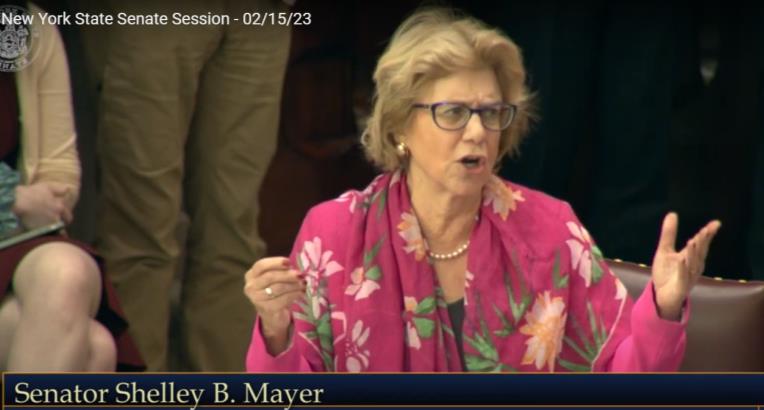
Analysis and Commentary by Robert Lynch, February 20, 2023
Lea Webb, my State Senator, disappointed me last week. So did 37 of her Democratic Party colleagues, members of New York’s upper chamber. Each of them put politics above principle, innuendo over intelligence, and rejected a skilled, experienced jurist, Hector LaSalle, to become Chief Judge of the Court of Appeals, New York’s Highest Court. When they did, dismissing the choice of their own—and my own—party’s governor, Kathy Hochul, they betrayed the public’s trust. And they betrayed mine as well.
With LaSalle’s rejection, I have lost confidence in the majority party that governs our Empire State. The wound that the majority Democrats inflicted on me, and on us, cuts deep. It may never heal. And because the party that holds the votes in Albany to enact our laws and confirm our judges has chosen to walk away from me, I may choose, in time, to walk away from them. The choice of a Chief Judge matters to me. It matters a lot. Hector LaSalle’s rejection may force for me a pivotal course correction.
Governor Hochul, with minimal fanfare, nominated Hector LaSalle to the Court Appeals a few days before Christmas. An expanded State Senate Judiciary Committee, packed last-minute with Hector-hostile partisans, rejected the Chief Judge nominee January 18th. By just one vote, it failed to advance LaSalle’s name to the floor. For weeks, the Majority Leader, Sen. Andrea Stewart-Cousins, and her Democratic allies blocked any prospect of bringing the LaSalle nomination to the Senate floor and to allow all 63 Senators to decide the judge’s fate. Republicans sued, arguing the State Constitution demands a floor vote regardless of the committee’s recommendation.
Suddenly, surprisingly, Stewart-Cousins relented. Last Wednesday, Democrats hastily moved the nomination to the Senate floor, and just as hastily, hugging party allegiances, they voted the nomination down. The 20-39 defeat saw all but one of the Democrats present opposing LaSalle. Just one attending Republican opposed his advancement. Hooray for Democrat Senator Monica Martinez of Long Island. She, alone, had the courage to buck her party and support LaSalle. Ms. Martinez, I do not cast you in with the rest of your sorry lot.
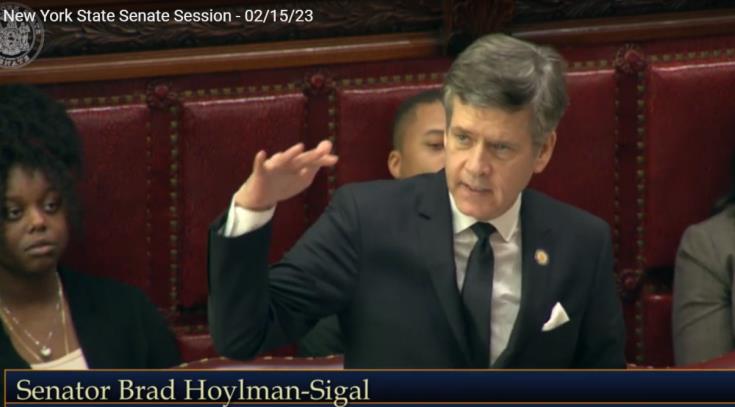
“Haven’t we changed the game in Albany?” Senator Brad-Hoylman-Sigal, Chair of the Judiciary Committee, crowed Wednesday during a partisan-poisoned pre-vote debate. “This is a new beginning for the way we review judicial nominations, all nominations, legislation, all matters of public import. I think that’s something we should be proud of.”
Maybe for you, maybe for Democrats, but not for me. Hoylman-Sigal proved particularly hostile to Hector LaSalle during the committee’s January confirmation hearing. He often snarled at the nominee, never smiling, pointedly faulting LaSalle, and doing so particularly harshly, for LaSalle’s accepting cross-endorsement by the New York Conservative Party in a prior campaign for a lower court’s elective office. One suspects Hoylman-Sigal lives for political combat and for little else. I suspect he has more political sycophants than he has genuine friends.
“We can find a better nominee to lead this Court. And we need to do it ASAP.” Hoylman-Sigal said before he cast his vote against Hochul’s nominee, “because we have a court system that is teetering on the brink of disaster.”
His opinion. Not mine.
Senate rejection puts the nomination of Chief Judge back to square one. An advisory panel will come up with a new list of seven finalists for the appointment, from whom Governor Hochul will select a new nominee. Many on that new list could be some on the old list from which Hochul chose LaSalle. The process could take months. Our seven-member Court of Appeals could remain one jurist short into summer. The Court’s remained short-handed since the prior Chief Judge, Janet DiFiore, resigned under an ethics cloud last July.
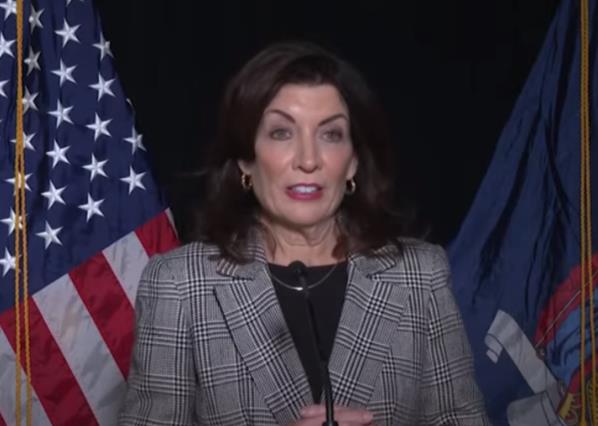
“Now that the full Senate has taken a vote, I will work toward making a new nomination,” Governor Hochul dictated in a transparently terse three-paragraph statement, spilled from her office’s press room after Wednesday’s vote. It had a lick-your-wounds quality to it; focusing on the majority’s concession to a floor vote, rather than lamenting LaSalle’s rejection.
“This vote is an important victory for the Constitution. But it was not a vote on the merits of Justice LaSalle, who is an overwhelmingly qualified and talented jurist,” Hochul stated. She was right.
Some pundits have suggested that the Senate’s rejection of LaSalle could poison the well of intra-party political discourse in Albany, where Democrats hold veto-proof supermajorities in both the Senate and Assembly, and upcoming budget discussions often devolve to those secretive “three men (and now, women) in a room,” smoke-filled confabs, absent the nicotine.
“There’s other issues where you find common interests,” the Governor told an Albany radio host just prior to Wednesday’s vote. “I think that’s what New Yorkers want to occur. Not to have us in our respective corners with our gloves up and ready to fight.”
We’ll see. New York’s bloated, proposed budget weighs in at $227 Billion. It’s due for adoption April 1.
A “Liberal Lion” is what Senate Democrats seek, I wrote in a January 24th commentary on the nearly five-hour confirmation grilling that led to Hector LaSalle’s rejection by the Judiciary Committee. Legal observers see the Court’s residual bench as evenly-split; three judges confirmed liberals, the remaining trio somewhat to their right. So the Chief Judge appointment, to Democrats, becomes an opportunity for a much-sought lurch-to-the-left.
No doubt, last year’s rejection of the Legislature’s Democratic-gerrymandered redistricting maps is not lost on the majority’s mind. Former Chief Judge DiFiore, a perceived centrist-conservative, cast the deciding vote to invalidate those maps. Liberals want nothing more like that in the future. Their progressive agenda, they’d argue, most deserves a true believer to carry their water.
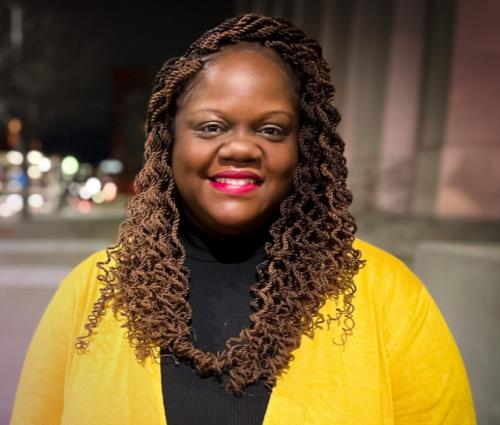
During that hour and 15-minute Senate debate last Wednesday, the shadows of Justices Samuel Alito and Clarence Thomas repeatedly loomed about the chamber.
“We know that at the federal level, our Supreme Court is a complete mess,” downstate Senator Andrew Gounardes asserted. Gun rights have been expanded; abortion rights restricted. “So at a time when this is happening at our national government, it’s even more important that state judiciary, that our state government, be both a bulwark and a beacon, in protecting and advancing the same rights that our federal Supreme Court is so quickly eroding,” Gounardes emphasized.
In Gounardes’ opinion, Hector LaSalle stands too cautious and conservative amidst this legal onslaught. “He saw the law as a narrow tool, and not as an expansive tool, sword and shield to protect the rights of litigants, to protect the rights of workers, to protect the rights of women, and so many others,” the Senator insisted. But note how Gounardes cherry-picks the subset of litigants who matter most to him.
“I met with the judge, and I thought he was extremely nice,” Albany-area Democrat Neil Breslin observed. “I thought he was capable, but he didn’t pass the total test in my estimation.” Breslin, too, voted no.
“There is a context in which the people of this state woke up to realize that judges really matter,” Westchester Democrat Shelly Mayer said in explaining her opposition. “What happened in my district is that people woke up and said, ‘Are you kidding me? Who we pick as a judge really matters.’”
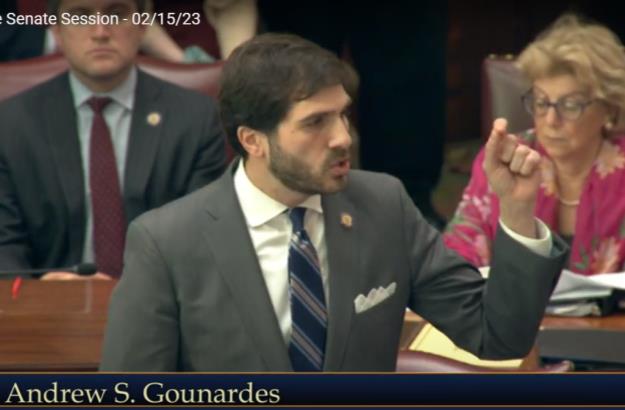
“We’re not asking for a judge who calls balls and strikes,” Mayer tellingly stated, employing the baseball umpire analogy others used. “We’re asking for judges who apply the law and understand the context of what the implication of a decision means for millions of New Yorkers.”
Mayer, like Senator Gounardes, viewed Judge LaSalle’s legal outlook as too narrow. “And a consistently narrow interpretation of the law,” Mayer stated, “really is a risk to our individual constituents.”
Mayer called the day’s decision “impactful and so important.” “We can’t walk away from it because it’s hard; because it’s uncomfortable,” she said. But neither can Mayer, Gounardes or their three dozen fellow Democrats walk away from the political agenda that underlies their action.
Their words clearly amplify intent. They seek not so much a competent, knowledgeable arbiter of legal fairness as they do a loyal judicial lapdog, someone who will stretch statutes like an elastic band regardless of precedent and bend the state Constitution so as to amend it from the bench in ways that liberals find too messy or unpopular to enact through the will of the voters.
And either through ignorance or artifice, LaSalle’s Democratic opponents suggest something else. They seek to hoodwink voters into thinking the New York Court of Appeals holds some magical power to countermand the U.S. Supreme Court. In truth, it works the other way. Yes, a state court may expand constitutional liberties beyond federal standard. (That’s how the Court of Appeals in 2004 invalidated New York’s Death Penalty.) But federal supremacy prevents New York from constricting liberties that the Supreme Court insists the U.S. Constitution protects. The likes of Shelly Mayer may hate the overruling of New York’s concealed carry law. But even if state courts affirm Albany’s patchwork replacement to the law that Justice Thomas and his majority last year struck down, the Supreme Court’s majority could always declare the new law null and void. Mayer doesn’t tell you that, though I’m sure she knows it.
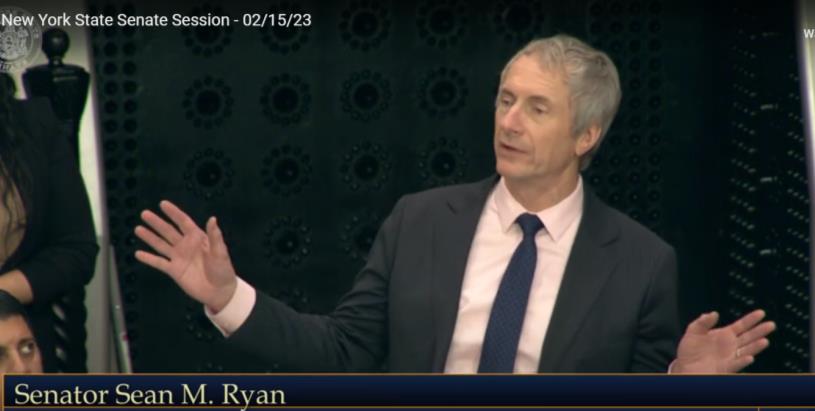
Senator Sean Ryan would impose a straight-jacketed career litmus test upon the next Chief Judge, one Hector LaSalle, a former prosecutor, could never meet. “My prism is someone who’s spent most of his career as a lawyer helping the dispossessed,” the Buffalo-area Democrat told colleagues. “New York State needs a Chief Judge who has a broad vision of the law, has a broad vision of how law affects society, and knows that the decisions of those courts affect everybody in society.”
I’ll credit Senator Ryan for at least being factually correct—albeit evasive—in raising for his rebuke Judge LaSalle’s handling of the one case which liberal critics most distort. It’s Evergreen Association Inc. v. Schneiderman. “The judge went out of their (sic) way to assert the rights of a crisis pregnancy center to somehow give them equal footing to spread disinformation to people in our society,” Ryan stated.
LaSalle’s opponents would like us to think that Evergreen was a holding hostile to abortion rights. When they do, they twist the truth, and it’s time to set the record straight.
When it decided Evergreen in 2017, the mid-level court on which Hector LaSalle sits ruled that the First Amendment’s Right of Association limited the State Attorney General’s reach to subpoena a Christian-aligned crisis pregnancy center’s operational and staffing records in his effort to evict center operations from a medical office building. The Appellate Court’s unanimous holding only limited—it did not block—the A.G.’s efforts to probe whether a volunteer-staffed center that provided sonograms and pregnancy tests amounted to unauthorized practice of medicine.
To assert, as LaSalle’s critics have so brazenly done, that Hector LaSalle’s joining a unanimous bench in this most diminutive crumb of legal procedure somehow makes the nominee anti-choice and unfit to serve, is to steer public sentiment on the basis of a boldfaced lie. Moreover, the strategy postures the anti-LaSalle Senate majority as not so much pro-abortion rights, as actually pro-abortion itself. Taken to its logical conclusion, Senator Sean Ryan and his liberal allies would seem to prefer that medical alternatives to abortion simply should not exist. And by citing LaSalle’s Evergreen holding as a disqualifier for promotion, Senate Democrats imply just that.
Majority Democrats would rather you read only their bumper-sticker, not the case itself. In Evergreen, Judge LaSalle had wisely sought to expand reproductive options, not limit them, albeit on fine-spun procedural grounds.
State Senate Republicans number just 21, their ranks only strong enough to raise a polemic rejoinder. By and large, they backed LaSalle.
“He has applied the law that has been passed by the Legislature,” Nassau County Republican Patricia Canzoneri-Fitzpatrick said in defense of Judge LaSalle and his record. “And that’s the job of the judiciary; to apply the law, not to legislate.”
“I support this nominee. I worked with the nominee. He is an incredible jurist who calls balls and strikes,” Judiciary Committee Ranking Member Anthony Palumbo said in support of LaSalle. “And he’s a plain old liberal Democrat, which apparently isn’t good enough.”
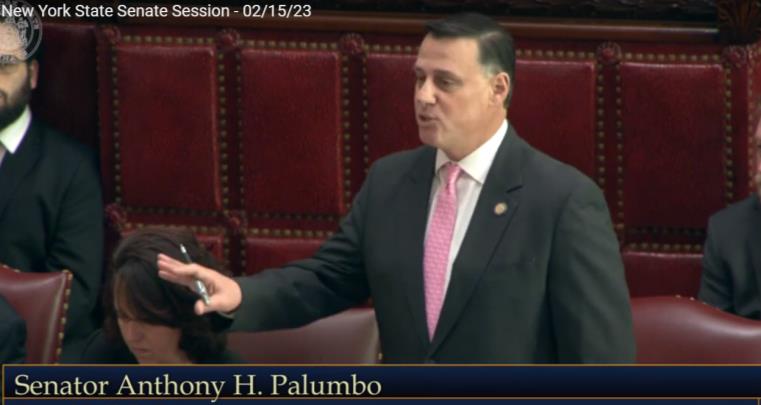
Suffolk County’s Palumbo is the Senator who filed suit to bring LaSalle’s nomination to the floor. The case was argued in court last Friday, with the judge then reserving decision. Some suggest the suit twisted Democratic leadership’s arm just enough to bring about last Wednesday’s vote.
“We seem to have a group of members who think that, well, if we can’t change the Constitution, then let’s change the courts,” Palumbo chided his Democratic opposition. “So we’re now going to pack a court with activists who choose not to follow the law, unlike Justice Hector LaSalle, who simply calls balls and strikes.”
Indeed. “This is a conversation about changing the strike zone, Palumbo’s Long Island Republican colleague Steven Rhoads echoed, Rhoads continuing the debate’s frequent throwback to baseball. “Because what the majority is doing, they’re not interested in somebody calling balls and strikes; they’re interested in somebody who’s going to call balls and strikes the way they want them called.”
Senator Rhoads called the majority’s handling of the LaSalle nomination “an embarrassment.” Staten Island Republican Andrew Lanza agreed.
“I think people are sick of this kind of politics,” Lanza asserted. “I think it’s wise that people back home don’t trust us, any of us, either party, because they see these types of games being played.” The downstate Republican stands wisely aware of how cynical we voters can be.
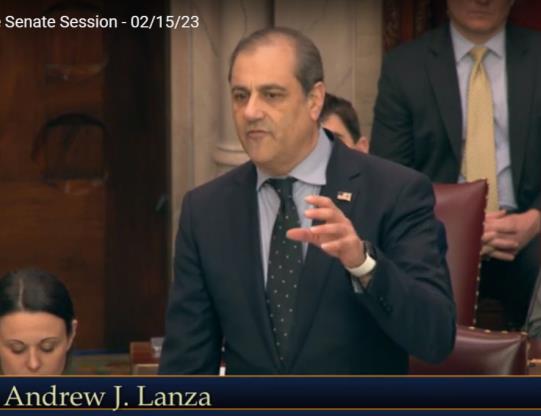
“We all know why the nominee did not come to the floor” in a timely manner, Lanza continued. “It’s because the nominee refused to give the old wink-and-nod that when he’s on the bench, he would refuse to honor the Constitution, and he would pass and support whatever radical agenda that came to his decision-making desk.”
Democrats Luis Sepulveda of the Bronx and Kevin Thomas of Long Island had each supported LaSalle in committee, yet neither attended Wednesday’s session to cast their votes. Perhaps their absence reveals the power of Andrea Stewart-Cousins to close ranks. Or perhaps it reveals something else. No matter. Even had they been present, Hector LaSalle would have lost.
Binghamton’s Lea Webb, Tompkins County’s State Senator, spoke not a word during the February 15th floor debate, the 52nd District representative casting her vote in opposition to the LaSalle nomination, but offering no statement on her office’s website to elaborate on why she did.
****
So Hector LaSalle, New York State’s here-today, gone-tomorrow nominee to lead its Highest Court, retreats to relative obscurity. He continues his role as Presiding Justice of the Appellate Division’s Second Department, one of four regional, mid-level appellate courts in the state, LaSalle’s covering part of New York City and the counties surrounding it. LaSalle won’t serve us, except through the overlapping precedents other regional courts may choose to observe.
Senator Palumbo, meanwhile, presses forward with his lawsuit to demand future judicial nominations reach the State Senate’s floor regardless of how Hoylman-Sigal’s committee treats them. Majority leader Stewart-Cousins’ lawyers asserted in court Friday that the issue is now moot and that Palumbo lacks standing to sue. Palumbo’s counsel counters that the case remains alive as Hochul’s next nomination could repeat the process.
News reports say State Supreme Court Justice Thomas Whelan expressed interest in the case during oral arguments Friday. The judge termed it a “constitutional crisis,” assigning the judiciary “the duty and the obligation… to rule on the constitutional solution.” Though Whalen’s ruling on the merits is imminent, an appeal of any decision remains probable. It could rise to the now ideologically-split Court of Appeals.
“Everybody is paying attention, riveted, to who’s sitting in these seats, who’s sitting in the judiciary, who’s making these decisions,” Stewart-Cousins told reporters following the full Senate’s vote. “So it was not inappropriate for us, with the eyes of the nation and the eyes of the state on us, to look for a nominee that was able to lead the court in this really, really critical time.”
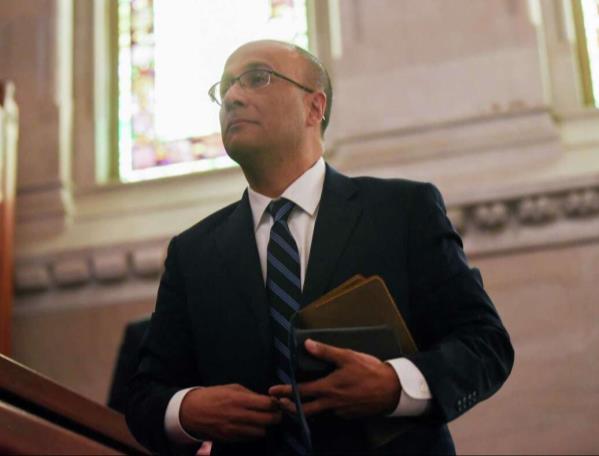
But look at a nominee what way? Should a judge be merely a judge? Or must he also serve as a legislator of last resort? New York Democrats count on your inattention and political outrage to permit them to impose their supermajority muscle over a separate branch of State Government, and to do so in a way that weakens the independent judiciary and transforms the courts into a reliable enforcer of liberal will. Separation of powers matters. Democracy matters. Quite plainly, in the war of words February 15th, Republicans made the better argument. The GOP sought blind justice. Democrats revealed they’d prefer that “wink-and-nod” from behind the blindfold.
Hector LaSalle drove up the Hudson from New York City last Wednesday and sat more or less alone in the Senate gallery, high above the floor, to watch the career opportunity of a lifetime evaporate before his eyes. He sat in silence. He declined reporters’ questions afterward. LaSalle knows he fell victim to an ideological agenda engineered by perfectionist zealots within his own party, Governor Hochul’s own party—and sadly, also, my own party. I hope Hector LaSalle took a deep breath of fresh air as he exited the State Capitol that day. Because inside the chamber, the room truly stunk.
###

